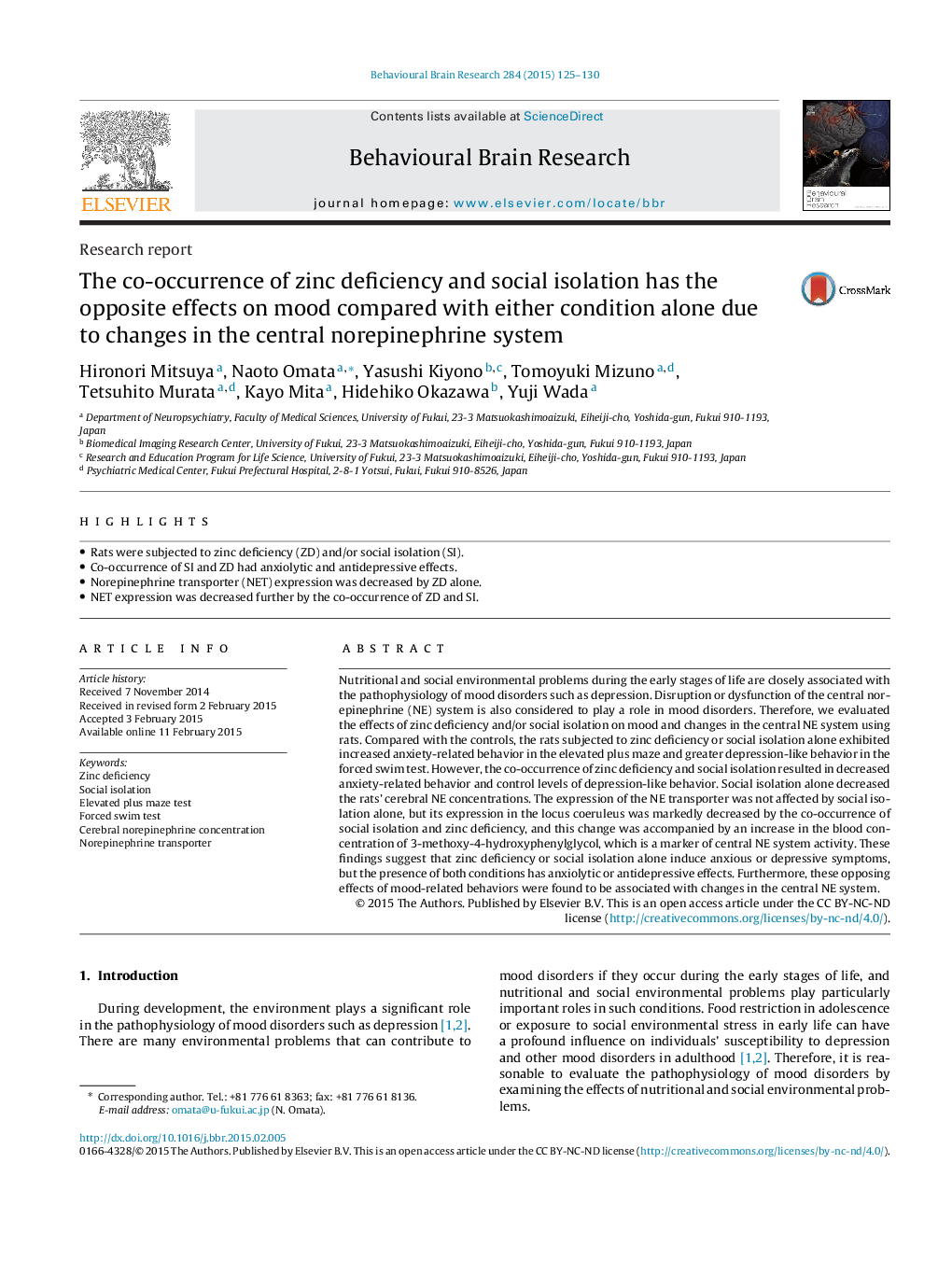| کد مقاله | کد نشریه | سال انتشار | مقاله انگلیسی | نسخه تمام متن |
|---|---|---|---|---|
| 6256780 | 1612948 | 2015 | 6 صفحه PDF | دانلود رایگان |
- Rats were subjected to zinc deficiency (ZD) and/or social isolation (SI).
- Co-occurrence of SI and ZD had anxiolytic and antidepressive effects.
- Norepinephrine transporter (NET) expression was decreased by ZD alone.
- NET expression was decreased further by the co-occurrence of ZD and SI.
Nutritional and social environmental problems during the early stages of life are closely associated with the pathophysiology of mood disorders such as depression. Disruption or dysfunction of the central norepinephrine (NE) system is also considered to play a role in mood disorders. Therefore, we evaluated the effects of zinc deficiency and/or social isolation on mood and changes in the central NE system using rats. Compared with the controls, the rats subjected to zinc deficiency or social isolation alone exhibited increased anxiety-related behavior in the elevated plus maze and greater depression-like behavior in the forced swim test. However, the co-occurrence of zinc deficiency and social isolation resulted in decreased anxiety-related behavior and control levels of depression-like behavior. Social isolation alone decreased the rats' cerebral NE concentrations. The expression of the NE transporter was not affected by social isolation alone, but its expression in the locus coeruleus was markedly decreased by the co-occurrence of social isolation and zinc deficiency, and this change was accompanied by an increase in the blood concentration of 3-methoxy-4-hydroxyphenylglycol, which is a marker of central NE system activity. These findings suggest that zinc deficiency or social isolation alone induce anxious or depressive symptoms, but the presence of both conditions has anxiolytic or antidepressive effects. Furthermore, these opposing effects of mood-related behaviors were found to be associated with changes in the central NE system.
Journal: Behavioural Brain Research - Volume 284, 1 May 2015, Pages 125-130
